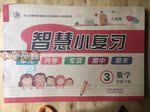题目内容
It is ______ to improve the working conditions for the construction workers.
| A.worthwhile | B.worth | C.worthy | D.worthy of |
A
解析

 智慧小复习系列答案
智慧小复习系列答案Perhaps a parent’s most important contribution toward raising a trustful child is to develop a relationship founded on trust. A child of any age will feel proud and grown-up if parents frequently show their trust. In court a defendant(被告) is innocent until proved guilty. But in the family, a teenager “defendant” is too often assumed guilty.
Even when the child is caught in a complete lie, this should not be the end of trust. A parent can tell a child that a single lie is forgivable. Yet it should be clear that if lies continue, the child, like the boy who cried wolf, will suffer loss of trust.
When my wife and I discovered that our son Tom, then 13, had lied about throwing a party while we were away, we grounded him for a month. We also told Tom that we could no longer trust him, and we could not allow him to stay alone overnight again. This loss of freedom was an important lesson; he learned how hard it is to live with people when they don’t trust him. As a result, now more than three years later we can again trust Tom to stay alone overnight.
Parents must always remember there is no easy answer to this universal problem of lying. We can set a good example, allow for privacy, monitor friendship, develop trust and punish wrong doing, but still we discover our child has lied to us. Finally that’s why there is a need for trust on both sides of a parent-child relationship. Lying destroys closeness and friendship. For that reason, parents should always try to give a child the feeling that they can be trusted with the truth. Parents may start with a child’s trust, but as the child grows older, parents must earn it.
【小题1】When the writer and his wife discovered that their son had lied, they _________.
| A.took all his freedom from him |
| B.decided never to trust him again |
C.forbade hi m to stay alone overnight m to stay alone overnight |
| D.arranged him to stay at home. |
| A.parents don’t trust their child as they should |
| B.defendants are usually proved not guilty in court |
| C.parents have too much trust in their child |
| D.some children are founded guilty in court |
| A.parents shouldn’t punish their children even if they lie |
| B.it is not easy to deal with the problem of lying as parents |
| C.there are effective ways to prevent children from lying |
| D.children will stop telling lies as they grow up |
John,an academically excellent young man,went to apply for a management position in a big company.The director did the last 36 .
The director asked,“Who paid for your school fees?” John answered.“My 37 did.When I was young,my father 38 .”Then he continued.“ 39 was your mother?” John answered,“My mother worked as a 40 cleaner.”Hearing this, the director asked John to 41 his hands.John reached out his hands that were 42 and perfect.The director said,“I have a 43 .when you go home,clean your mother’s hands and see me tomorrow.”
John felt 44 but did it.His tears fell 45 he cleaned his mother’s hands.He noticed for the first time that her hands were so 46 .Also John 47 that it was this pair of hands that washed clothes every day to 48 him.After cleaning his mother’s hands,John 49 washed all the remaining clothes for her.
Next day,John went to the director’s office. Tears in eyes,John was asked to 50 his feelings.“Now I know what is 51 .Without my mother,there wouldn’t be the 52 me today.By helping my mother,I see how 53 it is to get something done.I have also come to know the value of family relationship.”
The director smiled,This is what I am 54 .I want a person who can appreciate the help of others,a person who knows the sufferings of others and a person who 55 put money as his only goal in life.You are hired.”
|
1. |
|
|
2. |
|
|
3. |
|
|
4. |
|
|
5. |
|
|
6. |
|
|
7. |
|
|
8. |
|
|
9. |
|
|
10. |
|
|
11. |
|
|
12. |
|
|
13. |
|
|
14. |
|
|
15. |
|
|
16. |
|
|
17. |
|
|
18. |
|
|
19. |
|
|
20. |
|